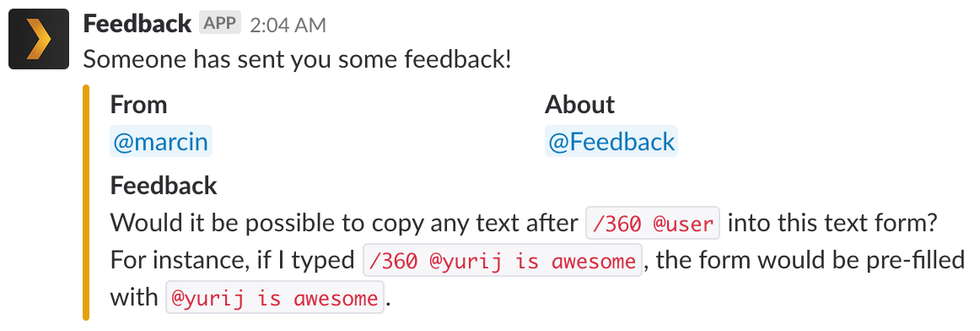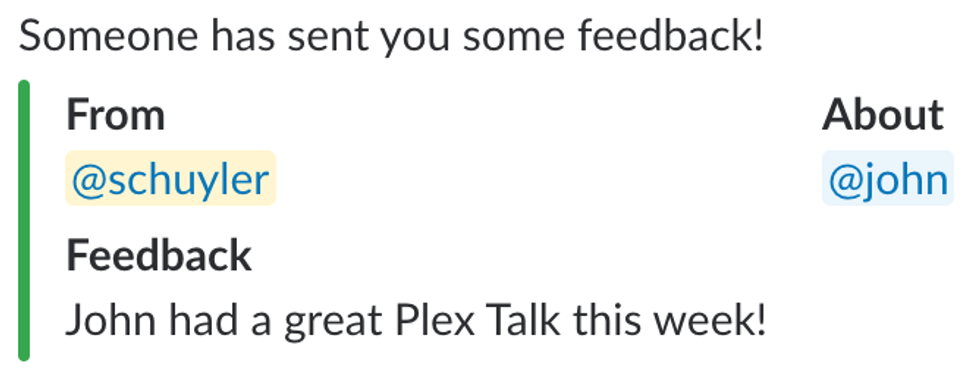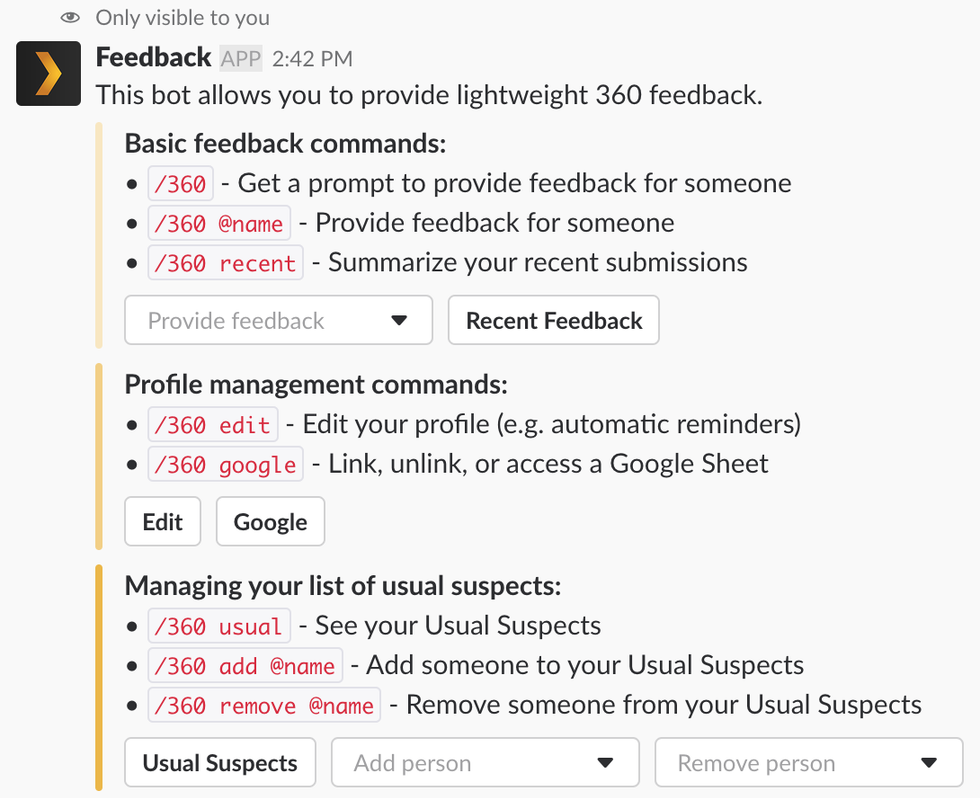Below is an article originally written by Schuyler Ullman, Engineering Director at PowerToFly Partner Plex, and published on March 12, 2018. Goto Plex's page on PowerToFly to see their open positions and learn more.
At Plex, we believe in the value of feedback and we try to foster a kind and open culture where people are encouraged to give each other a well-rounded mix of kudos, constructive criticism, and virtual high fives. One of the core pillars of this feedback culture is a biannual 360º review process where everyone gets a chance to provide feedback for people throughout the organization, both highlighting strengths and offering constructive commentary on areas for improvement. And these aren't the kind of reviews that get distilled down to a number in some spreadsheet—these are dialogues. My favorite comment, from a recent hire after their first review cycle, summed it up:
We also love getting feedback on our feedback process, and two comments came up often:
- Six months between feedback is sometimes a long time.
- It can be really hard to stare at a blank document and think about good feedback, even for someone you work with often. Not to mention remembering a project from four months ago.
We started brainstorming how we might make things better. We didn't want to overreact; we had a process that for the most part was working well for our culture. It'd be great to have feedback more often, but nobody wanted to have a formal process more often than twice a year. Everyone agreed that you could make the whole exercise easier and better by keeping ongoing notes, but most of us weren't organized or disciplined enough to actually stick with it.
As a fully distributed team with people in 17 countries and 12 time zones, we've been living in Slack for more than four years. Focusing on how we work as a company, an idea was born. What if we encouraged people to use Slack to capture feedback on one person each week? It would be lightweight and get us much closer to that elusive "continuous feedback" without a formal cycle or deadline. Anything that integrates nicely with Slack is much more likely to stick in our culture. But would people actually do it? Could we help encourage participation or do more to make it happen and actually be successful?
We have a cadre of people who love to tinker and hack and try new things, turning ideas into reality. Slack has a good API with great docs. So we decided to play around with building a Slack bot that would send a regular reminder asking everyone for quick feedback about someone. Cue the tinkering and hacking, and within a couple days, it was feeling real.
Encouraged by a proof of concept, we started to socialize the idea and get some additional thoughts on what would make this successful. Some key requirements emerged:
- Light reminders are critical. If everyone could remember to take notes on their own, we never would have started down this path. A simple prompt that arrives once a week, at a time appropriate to the individual, is most likely to get the highest engagement.
- Weekly reminders are great, but don't make me wait! If you have feedback during the week, it should be easy to provide at any time.
- The simpler the better. A lot of our developers are used to keyboard shortcuts and textual interfaces, so complicated slash commands would be nothing new. But simple, interactive messages are best.
- Feedback shared should be easy to access. The author should always get a copy of the feedback, thereby creating that diary that most of us weren't diligent about keeping on our own. When the formal review cycle does roll around, you can easily scroll back in your chat history with the Feedback app and see what you wrote.
- It should understand the org structure. We don't mandate anything in particular on whom gets sent feedback; after all, we can always send each other regular slack messages or hop on a video call! But for these lightweight messages, it's nice for the default behavior to be sending feedback to the other person's manager.
We officially rolled the tool out last month, and we're incredibly excited to see how it evolves. It took less than 24 hours to get my favorite piece of feedback:

We hope this becomes an integral tool in our quest to foster a culture of openness and feedback. We'd love to share more in the future on what else we've learned and improved along the way.







